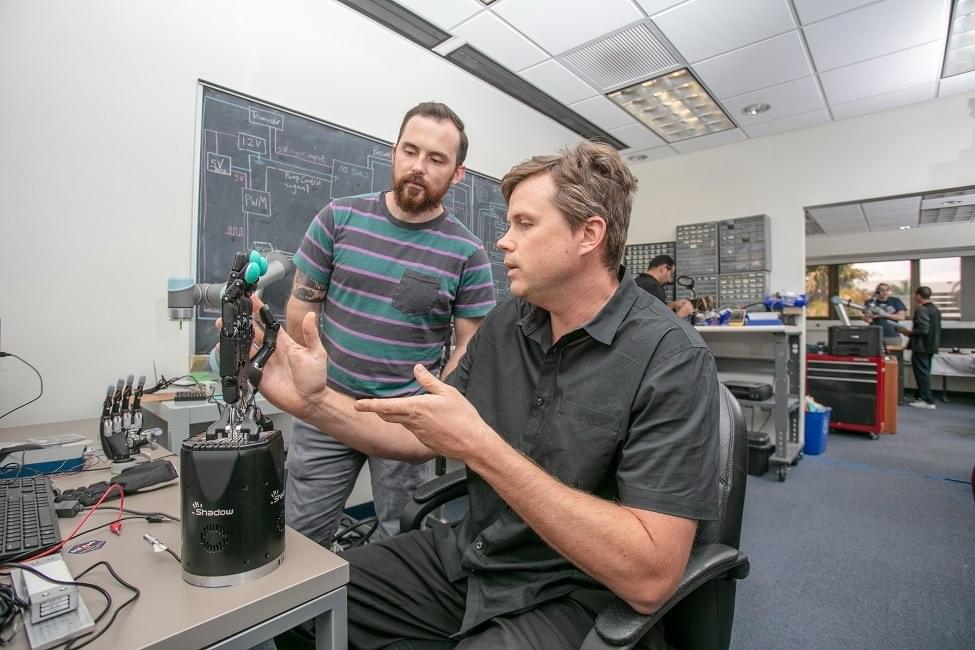Exploring the feasibility of tankers using lasers to recharge drones’ batteries is the program’s goal, but it could have bigger implications.
Get the latest international news and world events from around the world.

Robotic Armband Shows Promise for Advanced Dexterity
AZoRobotics speaks with Dr. Erik Enegberg from Florida Atlantic University about his research into a wearable soft robotic armband. This could be a life-changing device for prosthetic hands users who have long-desired advances in dexterity.
Typing on a keyboard, pressing buttons on a remote control, or braiding a child’s hair has remained elusive for prosthetic hand users. How does the loss of tactile sensations impact limb-absent people’s lives?
Losing the sensation of touch has a profound impact on people’s lives. Some of the things that may seem simple and a part of everyday life, such as stroking the fur of a pet or the skin of a loved one, are a meaningful and fundamental way to connect with those around us for others. For example, a patient with a bilateral amputation has previously expressed concerns that he might hurt his granddaughter by accidentally squeezing her hand too tightly as he has lost tactile sensation.

Amazon uses kid’s dead grandma in morbid demo of Alexa audio deepfake
Framing Alexa’s audio deepfake capabilities as a way to revive a connection to late family members is creepy and weird, even by Amazon’s standards.
Amazon taps emotional woes of pandemic, grief to push developing Alexa feature.




Beating NASA, China Set To Become 1st Country To Get Martian Sample Back On Earth — Chinese Expert
The space race has been silently intensifying with the geopolitical battle raging on the ground. With the United States having delayed its Mars mission to bring back samples to Earth, China could beat its rival in achieving that milestone. 4th Failure? NASA’s Artemis Rocket ‘Leaks’ During Pre-Launch Test As US Aims To Land Humans On […].

Lyme Disease Is Even More Common Than Experts Realized, New Research Finds
It’s extremely important to check yourself for ticks this summer.
Up to 14.5% of the global population may have already had Lyme disease, according to a new meta-analysis published in BMJ Global Health. The researchers behind the report analyzed 89 previously published studies to calculate the figure, which sheds a harrowing light on the worldwide toll of the tick-borne illness.
From 1991 to 2018, the incidence of Lyme disease in the United States nearly doubled, according to data from the United States Environmental Protection Agency (EPA). In 1991, there were nearly four reported cases per 100,000 people; that number jumped to about seven cases per 100,000 people by 2018. The Centers for Disease Control and Prevention (CDC) estimates that about 470,000 Americans are diagnosed and treated for Lyme disease each year.
The bacterium that most commonly causes Lyme, Borrelia burgdorferi, is transmitted to humans via the bite of an infected black-legged tick, also known as a deer tick. These especially tiny ticks are often found in the Northeast, Mid-Atlantic, Upper Midwest, and Pacific Coast of the United States, per the U.S. National Library of Medicine (NLM). Once a person has been infected, they may develop short-term, flu-like symptoms including fever, headache, and fatigue, as well as a signature bull’s-eye-shaped rash that appears in up to 80% of Lyme disease cases, according to the CDC. In rare instances, when Lyme is left untreated, a person may experience long-term, potentially life-threatening complications, including joint pain, severe headaches and neck stiffness, heart issues, and inflammation of the brain and spinal cord, among others.
